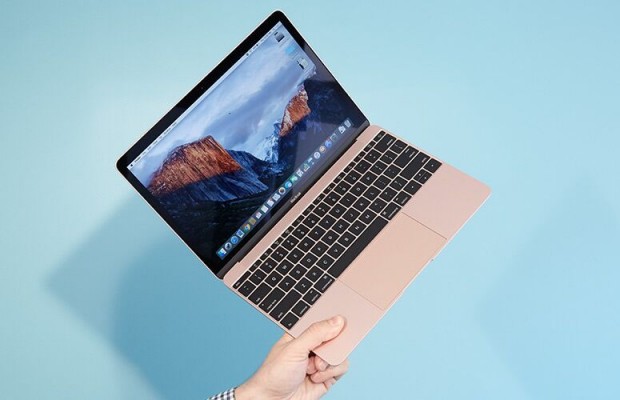Apple Killing Intel on Macs? This Is Big
Apple is reportedly ditching Intel chips on Macs for its own starting in 2020, which represents a huge shift in strategy and for consumers.
Apple is aiming to build its own processors for Mac computers, possibly as early as 2020, Bloomberg reports. That would shift the company away from Intel's CPUs and allow Apple to hold even tighter control of its ecosystem.
This move also represents a potentially huge change to macOS and iOS and how they would coexist going forward.

The project, reportedly code-named "Kalamata," is still in its very early stages, but the aim is to make Macs work better in concert for iPhones and iPads. Bloomberg says it will "result in a multi-step transition," so you won't see every device get Apple's new processors anytime soon.
"Apple has switched the Mac’s silicon platforms before, so if anyone can do it, Apple can." said Avi Greengart, research director for consumer platforms and devices at GlobalData. "2020 would be ambitious, but hardly impossible. I would expect that Apple might actually start with its consumer laptops where the performance/power balance is the most powerful, while Apple’s iMac and Pro machines continue on Intel silicon longer."
MORE: Which MacBook Should You Buy? MacBook vs. Air vs. Pro
Apple's last processor change was from IBM's PowerPC platform to Intel's processors. It was announced in 2005 and the first laptops with Intel shipped in 2006. This, on the other hand, sounds more complicated.
When reached for comment, an Intel spokesperson declined to comment on "speculation about our customers."
Sign up to get the BEST of Tom's Guide direct to your inbox.
Get instant access to breaking news, the hottest reviews, great deals and helpful tips.
Intel's stock fell nearly 8 percent on the news. According to Bloomberg, Apple is roughly 5 percent of Intel's business, so while it's not great news for the company, it also won't destroy it.
"The public perception of this is worse for Intel than the business impact," Ben Bajarin, principal analyst at Creative Strategies told Laptop Mag. "Most of Intel’s business is on the server side, and when it comes to PC’s Apple share is of PC sales is much smaller than that of HP, Lenovo, and Dell who are Intel’s largest customers."
Of course, this type of platform switch could cause issues for apps written on Intel's x86 platform, likely explaining the staggered rollout. But there have also been rumors of iOS apps coming to the Mac, which might be an uptick in apps for laptop and desktop users.
MORE: New Apple iPad 9.7-inch - Full Review
"It will be interesting to see what new developer tools come out that may blur the line between iOS and Mac app development," Bajarin said. "It is no secret that iOS has significantly larger volume of apps available than macOS, so if Apple can get more of the iOS developers to create apps for macOS without much additional work it could be huge for the Mac app ecosystem and the Mac platform in general."
Apple's A-series chip has been making rapid increases in power over the last several years. When we benchmarked the A11 Bionic found in the iPhone X and iPhone 8 and 8 Plus, it outperformed laptops with Intel's Core i5 processor on the popular Geekbench 4 test. Many analysts and reporters have suggested that Apple could one day create a chip for its own MacBook the way it does for the iPhone, iPad and Apple Watch.
As for new features, we'll have to wait and see. Just because iOS uses and Apple processor doesn't mean a MacBook with one would get, say, cellular connectivity.
"Moving to ARM makes cellular integration only slightly more likely," Greengart said. "Apple could put an LTE modem in its Intel-based Macs today if it wanted to. I wish it would."
This article originally appeared on Laptop Mag.
Andrew E. Freedman is an editor at Tom's Hardware focusing on laptops, desktops and gaming as well as keeping up with the latest news. He holds a M.S. in Journalism (Digital Media) from Columbia University. A lover of all things gaming and tech, his previous work has shown up in Kotaku, PCMag, Complex, Tom's Guide and Laptop Mag among others.

